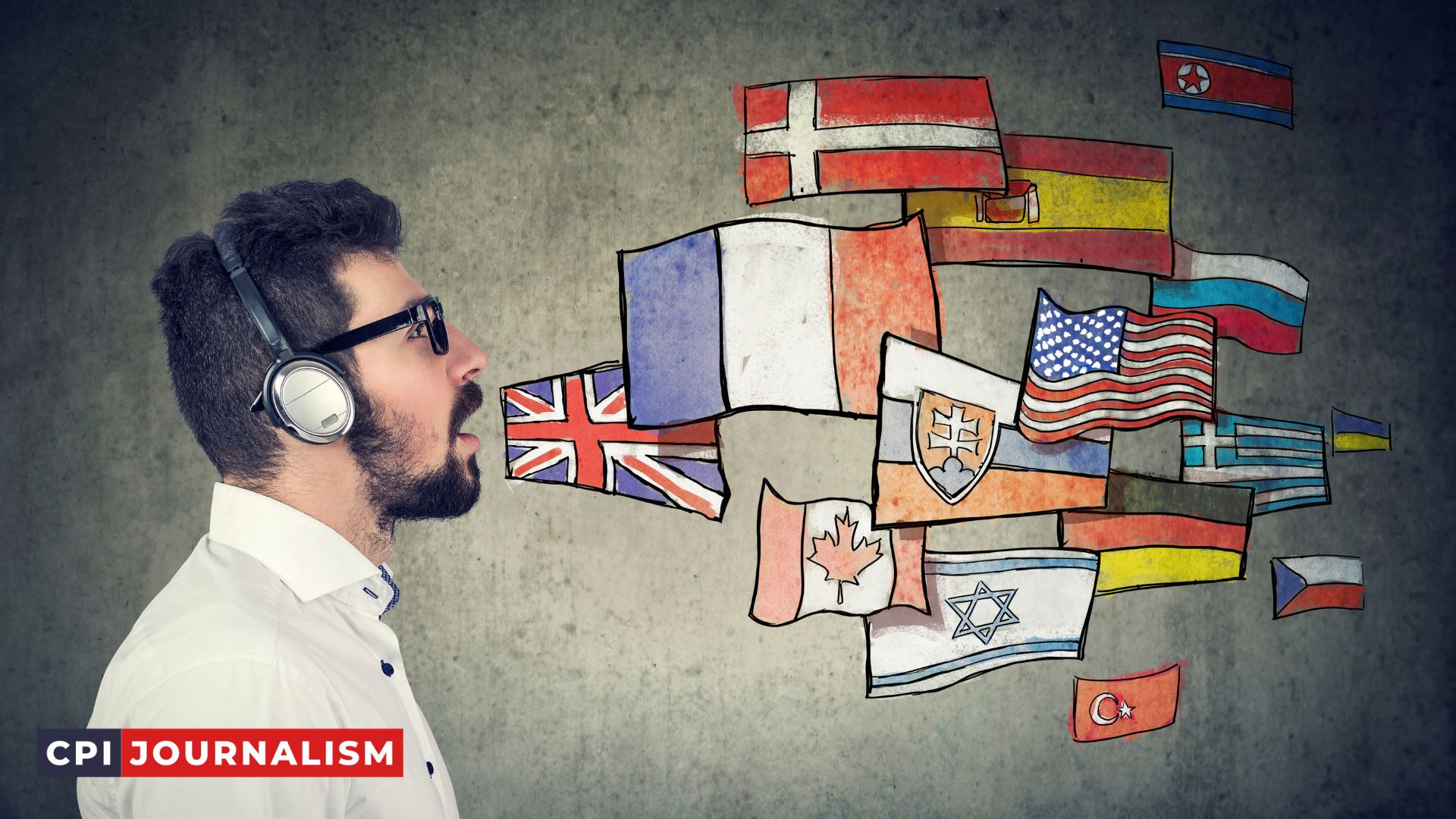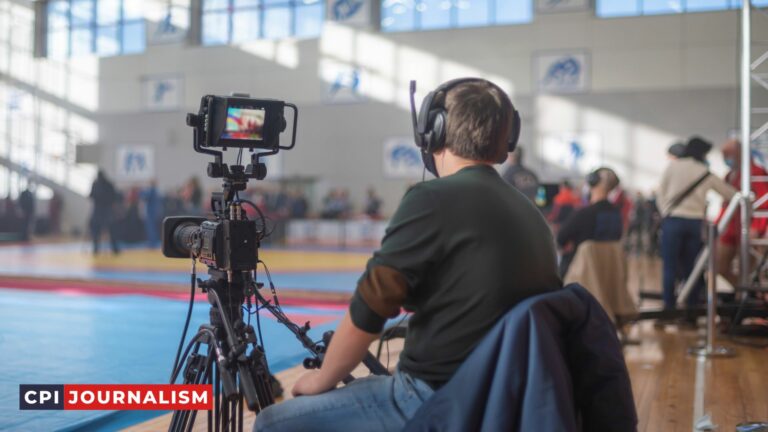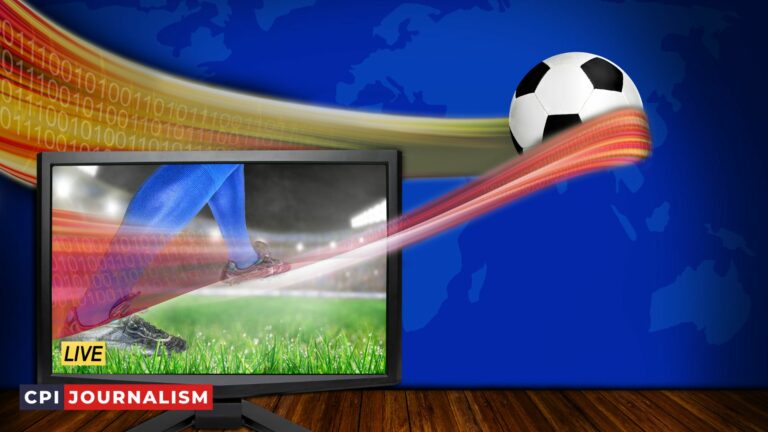What Are The Challenges Of Covering Sports Events In Different Languages?
As an experienced journalist, I have had the opportunity to cover sports events in different languages over the years. As rewarding as it can be, there are a number of challenges that come with this particular type of journalism.
In this article, I will be discussing the various challenges of covering sports events in different languages, as well as how to overcome them.
From developing a deep understanding of the language to building relationships with local sources, I will provide insight into the process of covering sports events in different languages.
So, for those of you looking to break into the world of sports journalism, take a look at the challenges and solutions I will present.
A. Language Barriers
One of the biggest challenges for journalists covering sports events in different languages is language barriers. This is especially true for those who may not be fluent in the language of the country they are reporting from.
As a journalist, it is important to be able to accurately and effectively convey the story to the audience.
When covering an event in a language that you are not comfortable with, it can be difficult to make sense of the dialogue and to accurately report it.
This can lead to misunderstandings and inaccurate reporting. It is important to take the time to familiarize yourself with the language, preferably before the event.
Another challenge in covering events in different languages is the difficulty of understanding the nuances of the event.
It is not always easy to understand the cultural context from a language you are unfamiliar with. This can lead to misunderstandings and a lack of depth in the reporting.
To overcome these language barriers, it is important to do research on the language and the event prior to the coverage.
Additionally, you should make sure to have a translator on hand to help with any difficult conversations. It is also important to take the time to familiarize yourself with the culture and context of the event.
With proper preparation and research, language barriers can be overcome when covering sports events in different languages.
1. Difficulty Understanding The Language
For any journalist covering a sports event in a different language, one of the biggest challenges is the difficulty in understanding the language.
As a journalist, it is important to have an accurate understanding of the conversations and context in order to make sure the story is accurately reported. This is especially true when covering a foreign sports event.
In order to overcome this challenge, it is important for journalists to have a good foundation in the language they are covering.
This means having a basic understanding of the grammar, vocabulary, and pronunciation of the language. It is also important to have a good understanding of the cultural aspects of the language.
For journalists who are unfamiliar with the language, there are a few options to help. One is to enlist the help of a translator, who can help to understand the language and accurately report the story.
Another option is to take a language course before covering the event, or to work with a local expert to better understand the language.
Finally, it is important to remember that the language is only part of the challenge. Journalists should also be aware of the cultural context of the event, as well as the cultural nuances that may be present in the language.
This will ensure that the story is accurately reported and that the journalist is able to accurately convey the culture of the event.
2. Difficulty Communicating with Athletes and Coaches
Covering sports events in different languages can present significant challenges when it comes to communicating with athletes and coaches.
As a journalist, it’s important to have a level of fluency in the language used by the athletes and coaches in order to properly communicate with them and obtain the information needed to report on the event.
However, even with a strong understanding of the language, there are still difficulties that can arise.
The biggest challenge for journalists is the lack of a shared language between themselves and the athletes and coaches.
Different sports organizations can bring together athletes and coaches from different countries, and even if they all understand the same language, their level of fluency and terminology used may be quite different.
This can make it difficult to accurately convey questions and understand the responses given.
Another difficulty comes from cultural norms. When interviewing athletes and coaches, it’s important to understand their experiences and the context in which they’re competing.
This requires an understanding of the culture and language of the country in which the event is taking place.
It’s not enough to just understand the language; journalists must also be able to interpret the cultural norms and connotations in order to get meaningful responses from the athletes and coaches.
Finally, there’s the challenge of accurately conveying the stories of the athletes and coaches to a larger audience.
As a journalist, it’s important to be able to accurately translate the stories of the athletes and coaches in a way that can be understood and appreciated by readers who may not understand the language.
This requires the journalist to have a deep understanding of the language and culture in order to properly convey the experiences of the athletes and coaches to a larger audience.
Overall, covering sports events in different languages can present some unique challenges when it comes to communicating with athletes and coaches.
It’s important for journalists to have a strong understanding of the language and culture of the country in which the event is taking place in order to accurately communicate with the athletes and coaches and report on their stories in a way that can be appreciated by a larger audience.
3. Difficulty Understanding The Rules and Regulations
One of the major challenges for sports journalists covering events in different languages is understanding the rules and regulations of the sport.
For example, when covering a soccer match in a foreign country, one must be familiar with the offside rule, the different types of fouls, and the various player positions and their responsibilities. This can be difficult for journalists who are not as familiar with the sport in that country.
Furthermore, different nations may have different regulations regarding the media coverage of sports events.
Journalists must be aware of these regulations and abide by them in order to be allowed access to the event. This can be particularly difficult when covering international events in countries with more restrictive media laws.
Finally, it can be difficult to understand the language of sports. For example, the terminology for different sports can vary greatly from nation to nation.
This can be particularly challenging for journalists who are not native to the country or familiar with the language of the sport.
In conclusion, understanding the rules and regulations of sports events in different languages can be a major challenge for sports journalists.
It is important for journalists to do their research and familiarize themselves with the language and regulations of the sport before covering a sports event in a different language.
B. Cultural Differences
Covering sports events from different cultures can pose a unique set of challenges for journalists. While the language barrier can be a challenge, cultural differences can also be a major hurdle.
For example, when covering a sporting event in a foreign country, it is important to research and be aware of the culture and customs of that area. This includes being aware of the dress code, local etiquette, and cultural norms.
Additionally, the way the sport is played in different cultures can be drastically different. Different countries have different rules, regulations and styles of play. This means that journalists need to have an understanding of these differences in order to accurately report on the event.
Finally, the attitude of the fans in different cultures can also be vastly different. In some cultures, fans are more boisterous and vocal, while in others, fans are more reserved and subdued.
A journalist should be mindful of this when covering an event, as it can influence the way they report on the event.
All of these cultural differences can pose a challenge for journalists covering sports events in different languages.
It is important to do the necessary research and be aware of the culture and customs of the area in order to accurately and respectfully report on the event.
1. Different Attitudes Towards Sports
As an experienced journalist, I’ve often found that the biggest challenge when covering sports events in different languages is understanding the different attitudes towards sports in each culture. In some countries, sports are seen as a way of entertainment, while in others they are viewed as a form of national pride.
Furthermore, certain countries may have different rules and regulations surrounding sports, which can make it difficult to accurately report on the event.
For example, in the United States, sports are often seen as a form of entertainment and a way for people to bond. People often go to sporting events as a form of relaxation and to have fun. In contrast, in many European countries, sports are viewed as a way to demonstrate national pride.
In these countries, people are often more passionate and serious about their teams and the sport they are playing.
It is important to be aware of these different attitudes towards sports when covering events in different languages. As a journalist, you need to be able to accurately report on the event, while also being sensitive to the culture and language of the country in which the event is taking place.
Additionally, you need to understand the rules and regulations surrounding the sport, as well as any restrictions that might be in place due to local laws or customs.
It is only by understanding the different attitudes towards sports in each culture that you can be sure to accurately and sensitively report on the event.
2. Different Expectations of Coverage
For journalists covering sports events in different languages, there can be a number of expectations placed upon them. One of the most important of these is that they must provide accurate coverage in a language that the audience can understand.
This can be challenging, as the speaker may be using unfamiliar terms or jargon that is not common in the target language. Additionally, the journalist must be mindful of any cultural nuances or differences in the way the game is played in the different languages.
Another expectation of a journalist covering a sports event in multiple languages is that they must remain impartial and provide unbiased coverage.
This can be difficult, as the journalist may have a personal connection to one team or player, or may be covering a game in a language that is not their native language. Even if the journalist is able to remain unbiased, the audience may be expecting a certain level of bias from a journalist covering a game in their native language.
Finally, there is the expectation that the journalist will provide a comprehensive coverage of the event. This can be a challenge when the language being used is unfamiliar to the journalist, as they may not be able to understand the nuances of the game or the plays being made.
Additionally, they must be able to provide a detailed account of the entire game, so that the audience can have a full understanding of what happened.
3. Different Social Norms
As a journalist covering sports events in different languages, it is important to be aware of the different social norms that you may encounter. For example, in some cultures, it is considered disrespectful to ask certain questions or to take pictures without explicit permission.
In other cultures, it is considered rude to speak too loudly or to make direct eye contact with people in authority.
It is important to be familiar with the social norms of the culture you are covering, as this can affect the way in which people react to you and the information you are trying to gather.
It is also important to be aware of cultural taboos. These can vary greatly from culture to culture, and can even vary within the same culture.
For example, in some cultures, it may be seen as disrespectful to talk about certain topics such as religion or politics. In other cultures, such topics may be seen as perfectly acceptable to discuss.
Finally, it is important to be aware of the different language and communication styles that you may encounter.
Many cultures have different ways of expressing themselves, and it is important to understand these differences in order to effectively communicate with people in the language you are covering.
Being aware of these different communication styles can help you to build trust with the people you are interviewing, as well as to ensure that the information you are gathering is accurate.
C. Technical Challenges
Covering sports events in different languages can be a tricky business and presents a variety of technical challenges. While it is possible to provide coverage of events in multiple languages, there are a few things to consider.
First, there is the challenge of ensuring that the broadcast is of the highest possible quality. This means having the right equipment and personnel to ensure the best possible coverage of the event.
Additionally, it is important to keep in mind any language-specific technical requirements, such as subtitling or dubbing.
Second, there is the challenge of ensuring that the broadcast is consistent across languages. This means having the right people in place to ensure that the coverage is of the same quality and accuracy in each language.
In some cases, this may require the use of translation software or services.
Finally, there is the challenge of ensuring that the coverage is consistent across time zones. This means ensuring that the broadcast is available at the same time for all viewers, no matter what language they are watching in.
This can be accomplished by using streaming services such as YouTube or Twitch.
In short, covering sports events in different languages presents a variety of technical challenges. It is important to keep these considerations in mind in order to ensure that the broadcast is of the highest possible quality and consistency across all languages.
1. Different Broadcasting Standards
One of the main challenges of covering sports events in different languages is dealing with different broadcasting standards. Every country has its own set of broadcasting standards, which can make it difficult to ensure consistent coverage of events.
For example, in the United States, broadcasts are typically done in NTSC format, while in Europe, PAL format is often used. This can create compatibility issues between the two regions, making it difficult to ensure that the broadcast is consistent across the board.
Additionally, different countries may have different standards for the audio encoding used. This can make it difficult to ensure that the audio is properly heard and understood in different countries.
Finally, countries may have different regulations regarding the content of the broadcast. This can make it difficult to ensure that the broadcast meets the standards of the country it is being broadcast to.
All of these different standards can make it difficult to ensure consistent coverage of sports events in different languages. As a journalist, it is important to be aware of the differences in broadcasting standards and to be prepared to adjust the broadcast to meet the needs of the audience.
2. Different Equipment Requirements
Covering sports events in different languages can be challenging due to the need for different equipment requirements.
Depending on the language of the event, journalists may need to have access to audio and video recording equipment that can accurately capture the event in its entirety. It is also important to have the right editing software to ensure that the footage is accurately translated and understood.
In addition to recording and editing equipment, journalists also need to make sure they have the right audio and video hardware to be able to properly capture the event.
This could include microphones, cameras, and other audio and video equipment that are compatible with the language of the event. In addition, journalists may need to have software and hardware that can accurately translate the language of the event.
Finally, journalists need to have the right network and data security infrastructure to ensure that their recordings and translations are secure and not vulnerable to malicious attacks.
This could include using the right encryption methods and secure communication channels to ensure that the recordings are not compromised.
By taking the time to research and invest in the right equipment, journalists can better ensure that they are able to capture the event in its entirety and accurately translate the language of the event for their audience.
3. Different Editing Techniques
When covering sports events in different languages, one of the challenges that journalists face is the need to utilize various editing techniques. As journalists, it is important to be knowledgeable in the basics of editing and to understand the different techniques available to them.
Here are some of the most common editing techniques that journalists use when covering sports events in different languages:
1. Translate and Rewrite: This is an important technique for journalists covering sports events in different languages.
It involves translating the text from one language to another, while keeping the same style, tone and meaning. It is important to be aware of any nuances in the different languages, as this could affect the meaning and tone of the article.
2. Cut and Paste: This is a basic editing technique that involves cutting and pasting text from different sources, such as online news articles or press releases.
It is important to use this technique judiciously, as it can be easy to overlook any errors or inaccuracies that may be present in the text.
3. Copy Editing: Copy editing is a more detailed form of editing, which involves making corrections to grammar, punctuation and spelling.
It is important to pay close attention to the details when copy editing, as this could affect the clarity and accuracy of the article.
4. Fact Checking: When covering sports events in different languages, it is important to be aware of any factual inaccuracies that may be present in the article. It is important to check facts, such as names, dates and locations, to ensure that the article is accurate and comprehensive.
These are just a few of the many editing techniques that journalists can use when covering sports events in different languages.
It is important to be aware of the different techniques available, as this could help to ensure that the article is accurate, comprehensive and well-written.
4. Different Time Zones
In addition to language barriers, one of the key challenges when covering sports events in different countries is the different time zones.
Many sports events take place in different parts of the world at different times. For example, while a soccer game in the UK may be taking place in the afternoon, the same game in South America may take place late at night.
This means that if you’re covering a sports event in a different time zone, you need to be prepared to stay up late or get up early to cover the event.
You may also need to adjust your work schedule to accommodate the time difference. This can be particularly challenging if you’re working on a tight deadline, as you may have to work extra hours to get the coverage done in time.

Another challenge with different time zones is that you may not be able to be physically present for the event.
This means that you’ll have to rely on other methods of gathering information, such as interviews with players, coaches, and other stakeholders, or streaming the event online.
This can be difficult if you’re not familiar with the technology or the people involved in the event.
Finally, different time zones can make it challenging to get the story out quickly. In some cases, you may need to wait until the event is over in the other time zone before you can start writing your story.
This can delay the publication of your story, which can be a problem if you’re working on a tight deadline.
Overall, covering sports events in different time zones can be a challenge, but it can also be a rewarding experience. With the right preparation and research, you can make sure you get the story out on time and that it’s accurate and engaging.
5. Different Media Platforms
The biggest challenge in covering sports events in different languages is adapting content to different media platforms. It’s not enough to just have a story in multiple languages; the coverage needs to be tailored to each platform.
For example, if a story is being broadcast on radio, it needs to be adapted for the medium so that it can be heard and understood by the audience.
The same holds true for other media platforms, from television to digital and print. Content must be tailored to the platform in order to be engaging and effective.
This includes understanding the audience’s preferences and creating content that is tailored to their interests.
It also means taking into consideration the format of the content, such as the length of the story, the type of visuals that can be used, the type of language used in the coverage, and so on.
Moreover, it’s important to be aware of the culture of the audience when creating content for different media platforms. It’s important to be mindful of the customs, beliefs and sensibilities of the audience in order to create content that is respectful and effective.
Finally, it’s important to create content that is both timely and relevant. This means that the content must be created in a timely manner in order to ensure that the story is still relevant and interesting to the audience.
It also means that the content must be relevant to the topic at hand and must be tailored to the needs and interests of the audience.
II. Solutions to Overcome Challenges
Given the complexity of providing sports coverage in different languages, it is important to recognize the challenges and devise solutions to overcome them.
The following are a few solutions that can help journalists in providing more effective and efficient coverage:
1. Hiring Multilingual Journalists: One of the most effective solutions to overcome the language barrier is to hire multilingual journalists. This will not only enable a more comprehensive coverage, but also enable the journalists to get direct access to the source of information in their native language.
2. Making Use of Translation Services: Another effective solution is to make use of translation services. This will enable journalists to get the information they need in their native language, without having to rely on a multilingual journalist.
3. Utilizing Technology: Technology can also be used to overcome the language barrier. For instance, with the help of automated translation tools, journalists can quickly translate their content into multiple languages for the convenience of their readers.
4. Establishing Relationships with Local Contacts: Establishing relationships with local contacts, such as sports clubs and athletes, can also be helpful. This will enable journalists to get firsthand information in their native language and provide more comprehensive coverage.
By utilizing these solutions, journalists can effectively overcome the challenges associated with covering sports events in different languages and provide more comprehensive coverage.
A. Hiring Multilingual Staff
As the sports industry continues to expand its reach across the world, it is increasingly important for journalists to be able to cover sports events in different languages.
While this can be a challenge, there are several strategies that can make it easier. One of the most effective strategies is to hire staff who are multilingual.
Hiring multilingual staff has a number of advantages. For one, it can help to ensure that journalists are able to accurately translate between languages.
This is especially important when it comes to sports events, as the language used in sports can often be very specific and technical. Additionally, it can help to ensure that journalists are able to accurately convey the nuances of the language to their readers.
Additionally, hiring multilingual staff can also help to ensure that journalists have access to the right people when covering sports events in different languages. This can be particularly helpful for getting interviews with players, coaches, and other people involved in the event.
It can also be helpful for getting access to local sources and understanding the local context of the event.
Finally, hiring multilingual staff can also help to ensure that journalists are able to provide comprehensive coverage of the event. By having staff that can speak the languages of the countries involved, journalists can be sure to provide an accurate and comprehensive view of the event.
In summary, hiring multilingual staff is an important strategy for journalists who are covering sports events in different languages.
It can help to ensure that they are able to accurately translate between languages, provide access to the right people, and provide comprehensive coverage of the event.
B. Utilizing Technology
As an experienced journalist, I understand the importance of utilizing technology to make the process of covering sports events in different languages easier. Technology can be used in a variety of ways to streamline the process and make it more efficient.
One of the most useful tools for covering sports events in different languages is machine translation software. This software can help to quickly and accurately translate between languages, allowing journalists to get their stories out quickly and accurately.
Additionally, there are a variety of tools available that can help to make the process of writing and editing articles in different languages easier and more efficient.

Another useful tool is voice recognition software. This software can help to quickly and accurately transcribe conversations between athletes and coaches, allowing journalists to quickly capture quotes and sound bites in multiple languages.
Finally, there are a variety of apps and websites that can help to make the process of researching, writing, and editing articles in different languages more efficient.
These tools can help to quickly and accurately capture statistics and quotes, as well as make it easier to collaborate with colleagues.
In summary, there are a variety of different tools and technologies available that can help journalists to cover sports events in different languages more efficiently and accurately. Utilizing these tools can help to streamline the process and make it easier to produce quality content.
1. Translation Software
As a journalist covering sports events in different languages, one of the biggest challenges you face is understanding the source language.
Fortunately, modern technology has made it easier than ever to overcome language barriers. Translation software is a must-have for any journalist covering sports events in multiple languages.
Translation software is designed to quickly and accurately translate words, phrases, and sentences from one language to another. It can be used to quickly and easily understand the source language, enabling you to write stories in any language.
This makes it much easier to cover sports events in different languages and to accurately report on events happening outside of your own language.
Translation software is also incredibly useful for quickly translating sports-related terminology. For example, if you’re covering a basketball game in Spanish, you need to know the Spanish word for “rebound”.

With translation software, you can quickly look up the term and make sure that you’re using the correct terminology in your story.
Finally, translation software can also help you to quickly and accurately translate interviews with athletes and coaches.
It’s often difficult to accurately translate spoken words into writing, but translation software can help you to quickly and accurately capture the essence of the interview.
In conclusion, translation software is an invaluable tool for any journalist covering sports events in multiple languages.
It allows you to quickly and accurately understand the source language, translate sports-related terminology, and capture the essence of interviews.
With the right translation software, you can make sure that your stories are accurate and informative, no matter what language they’re written in.
2. Automated Subtitling
When it comes to covering sports events in different languages, automated subtitling presents a unique challenge. Automated subtitling uses natural language processing algorithms to automatically generate subtitles for a video or audio.
This technology can be used to translate a video or audio into a different language and generate subtitles in that language, but it’s not always accurate.
The primary challenge with automated subtitling is that it can be difficult to understand the context of the video or audio in order to accurately generate subtitles.
Automated subtitling algorithms can be prone to errors, such as mistranslations or incorrect grammar, which can lead to misunderstanding or confusion for viewers.
Additionally, automated subtitling does not always capture nuances and cultural references which can be difficult to translate.
To address these challenges, journalists should take the following steps:
1. Test different automated subtitling software to find one that works best for the sports event in question.
2. Review the subtitles generated by the software and make corrections where necessary.
3. Check for any cultural references or nuances that may have been missed and make sure they are included in the subtitles.
4. Make sure that the subtitles accurately reflect the context of the video or audio.
These steps will ensure that the subtitles generated by automated subtitling are accurate and provide a clear understanding of the video or audio for viewers.
3. Automated Voice Recognition
One of the major challenges of covering sports events in different languages is the automated voice recognition. This involves using technology such as speech recognition software to transcribe recorded audio in various languages.
While this technology is becoming increasingly advanced and can be used for a variety of applications, it still has a long way to go before it can accurately transcribe audio in multiple languages.
In order to properly cover sports events in multiple languages, reporters need to be able to understand and transcribe audio in different languages quickly and accurately.
This is especially true when covering events with a fast-moving pace, such as a football game. Automated voice recognition technology can help in these situations, but it is still far from perfect.
For example, the software may not be able to recognize certain words or phrases, or it may not recognize a speaker’s accent.
In order to accurately cover sports events in different languages, reporters need to be able to understand and transcribe audio in multiple languages quickly and accurately. This is where automated voice recognition can help, but it is still far from perfect.
Reporters should use automated voice recognition tools with caution and should always be prepared to make corrections or clarifications if needed.
Additionally, reporters should be aware that automated voice recognition technology is not a perfect solution and should always be prepared to rely on their own judgment and experience when covering sports events in different languages.
4. Cloud-Based Collaboration Tools
In the modern age of international sports coverage, reporters and journalists need to be able to communicate and collaborate effectively with colleagues in multiple languages.
For this reason, cloud-based collaboration tools can be an invaluable resource for journalists covering sports events in different languages.
These tools allow reporters to work together in real-time, regardless of geographic location or language. They enable reporters to share and edit documents, share audio and video files, and even access other resources such as databases, websites, and social media.
These tools have revolutionized sports journalism, as they allow reporters to quickly and easily send updates and other information directly to their colleagues, no matter where they are located.
This helps journalists to stay on top of breaking news as it happens, and ensures that stories are reported accurately and quickly.
Furthermore, cloud-based collaboration tools often provide translation services, making it easier for reporters to communicate with colleagues who may not speak the same language.
This is especially helpful for journalists covering events in countries where English is not the primary language.
In addition to providing real-time communication, cloud-based collaboration tools also help to ensure that all members of a team have access to the same resources and information.
This can make the process of fact-checking and editing stories much easier, as all members of the team can review the same materials.
Overall, cloud-based collaboration tools can be a powerful tool for journalists covering sports events in different languages. They provide a way for reporters to quickly and easily share information and resources, and to stay on top of breaking news.
They also facilitate communication between colleagues who may not speak the same language, and ensure that all members of a team have access to the same information.
C. Working With Local Experts
As an experienced journalist who has covered sports events in different languages, I can attest that one of the most important challenges of covering such events is finding capable local experts to help you understand and interpret the language.
This is especially true if you are unfamiliar with the language of the event you are covering.
Finding local experts can be difficult and time consuming, but it is well worth the effort.
They can provide invaluable insights into the culture and language of the event, as well as invaluable assistance when it comes to understanding the nuances of the language and any particular terms or phrases that you may be unfamiliar with.
In addition to finding local experts to help with language-related issues, it is also important to find experts who can provide insights into the particular sport you are covering.
This can be especially helpful when it comes to understanding the rules and regulations, as well as any cultural differences or expectations that may be present at the event.
Finally, it is important to establish relationships with local experts before you ever cover a sports event in a foreign language. This will allow you to benefit from their knowledge and expertise in the long term, and it can also help to build trust between you and the local community.
This trust can be invaluable in the long run, as it can help to ensure that you receive the necessary cooperation and assistance when it comes to covering sports events in different languages.
D. Developing A Global Strategy
Covering sports events in different languages can be a challenging task for journalists.
It is important to create a global strategy in order to be successful in covering sports events in different languages. Here are some tips for developing such a strategy:
1. Research: Researching is the key to success when it comes to covering sports events in different languages.
It is important to understand the culture and language of the country you are covering. Researching will help you understand the nuances and complexities of the language. This will help you write more accurate and comprehensive reports on the event.
2. Network: Networking is another important aspect of covering sports events in different languages. It is essential to build relationships with local journalists who can provide valuable insights and tips on the language and culture.
Furthermore, networking with other journalists who are covering the same event can be beneficial as they can provide valuable advice and contacts.
3. Preparation: Preparation is critical when it comes to covering sports events in different languages. It is important to be prepared for the event by brushing up on the language, researching local teams and players, and familiarizing yourself with the culture.
4. Adaptability: Adaptability is key when covering sports events in different languages. It is important to be flexible and ready to adapt to different situations. This includes being able to adjust your writing style to different languages and cultural contexts.
By following these tips, journalists can develop a global strategy that will enable them to successfully cover sports events in different languages. With careful preparation and an open mind, journalists can make the most of the experience and provide comprehensive coverage of the event.
Conclusion
Covering sports events in different languages can be very challenging for journalists due to the language barrier, cultural differences and lack of access to resources.
In order to effectively cover sports events in different languages, journalists need to be prepared and have the necessary language skills, as well as the ability to adjust to the different cultural norms.
Furthermore, journalists need to have access to resources such as interpreters and native speakers, in order to ensure accuracy in their reporting. In addition, journalists need to be mindful of potential cultural misunderstandings, and take the necessary precautions to ensure they are communicating their message in the most appropriate way.
By staying informed and prepared, journalists can successfully cover sports events in different languages and provide their readers with accurate and timely information.
A. Summary Of Challenges
Covering sports events in different languages can be a daunting task for journalists, even for those who are experienced in the field. The language barrier is the biggest challenge, as it can be difficult to understand the nuances of a complex sport in a different language.
Other challenges include the lack of access to reliable sources of information, the potential for cultural misunderstandings, and the need to be able to accurately convey the atmosphere of the event.
For journalists who are unfamiliar with the language of the event, it can be difficult to comprehensively understand the sport itself. This is especially true in sports such as football, where the terminology and strategies can be complex.
Journalists must be able to accurately interpret and report the nuances of the sport, even if they are unfamiliar with the language.
Another challenge is the limited access to reliable sources of information. A journalist needs to be able to access reliable sources of information in order to accurately report on the event.
This can be difficult when the language of the event is unfamiliar, as the journalist will not be able to effectively evaluate the accuracy of the information.
Additionally, there is a potential for cultural misunderstandings. It is important for journalists to be aware of cultural nuances and to be able to accurately portray the event in a way that is respectful of the culture.
This can be difficult when operating in a foreign language, as the journalist will not have the same level of understanding as someone who is more familiar with the language and culture.
Finally, it is important for journalists to be able to accurately convey the atmosphere of the event. This can be difficult when the language of the event is unfamiliar, as the journalist will not have the same level of understanding of the nuances of the language.
In order to accurately portray the atmosphere of the event, the journalist must be able to comprehend the language and understand the cultural context of the event.
In summary, there are several challenges that journalists face when covering sports events in different languages. The language barrier is the biggest challenge, as it can be difficult to understand the nuances of a complex sport in a different language.
Other challenges include the lack of access to reliable sources of information, the potential for cultural misunderstandings, and the need to be able to accurately convey the atmosphere of the event.
B. Summary of Solutions
When covering sports events in multiple languages, the key is to ensure that all languages are represented accurately and fairly.
To do this, journalists should:
1. Utilize experienced interpreters and translators who are fluent in both the languages of the event and the language of their readership. This will ensure that all languages are interpreted and translated accurately.
2. Take the time to familiarize themselves with the culture, language, and context of the sports event. This will help create a better understanding of the event for the readership.
3. Research the event and its participants beforehand. Knowing the background information, such as the players’ nicknames, will make the content more accessible and engaging.
4. Make use of multimedia sources, such as videos, podcasts, and photos, to enhance the story. This will help bring the event to life for the readership.
5. Incorporate cultural insights and opinions into the coverage. This will help to give the story more depth and provide a better understanding of the event for the readership.
These are just a few of the solutions for covering sports events in multiple languages. With the proper preparation and research, it is possible to provide accurate and engaging coverage of any event in any language.
C. Final Thoughts
Covering sports events in different languages can be a daunting task for any journalist. It requires an in-depth understanding of the language, culture, and customs of the host country.
Additionally, the journalist must be prepared to tackle the language barrier that may arise, as well as the technical challenges of broadcasting in a different language.
However, despite the potential challenges, covering sports events in different languages can also be a rewarding experience. It offers the opportunity to gain greater insight into the local culture and customs, as well as a chance to hone your language skills.
Moreover, it’s a great opportunity to gain a better understanding of the history and culture of the host country.
Overall, covering sports events in different languages can be a challenging yet rewarding experience for any journalist.
With the right preparation and research, it can be a great opportunity to learn more about the host nation and its culture.







